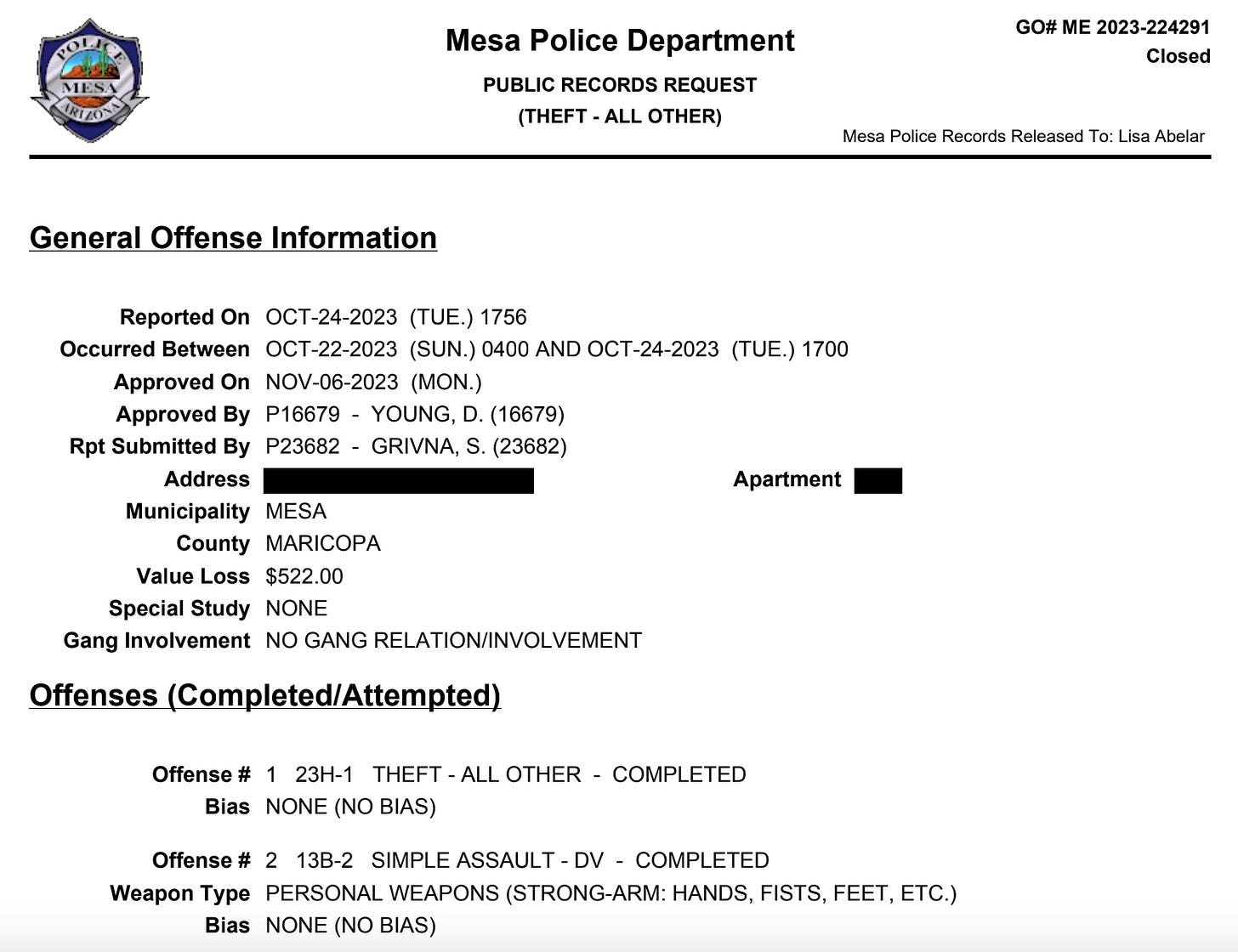Domestic abuse has several calling cards. We’ve discussed a few of them already, and I’ve pointed to the wheel of power and control repeatedly. Abusers, no matter who they are, rely on a set of strategic tactics to create leverage in a relationship — be it with a partner, in an office or as the leader of a country.
One of the most frequently used is intimidation.
I experienced it more than I can even quantify, in part because it comes in many forms. Of course there’s physical intimidation, which can be very scary. And I’m sure most of us are familiar with that form of intimidation, even if it's a distant memory from the elementary school playground.
There’s also a more nuanced and sophisticated form of emotional intimidation that involves mind games and manipulation — allowing the abuser to keep the upper hand in any given situation. For good measure, this tactic often also includes a degree of gaslighting to paint an opaque film over what’s really going on.
How does this manifest?
“I’ll tell the kids who you really are.”
“I know what you did and soon everyone else will know, too.”
“If you don’t do (insert bizarre thing), then it means you don’t really love me.”
Of course there are more straightforward acts of emotional intimidation, ones that threaten physical harm — which I’ve heard myself, but have also seen come across my desk far too often as I review applications for assistance for my nonprofit For Your Record, supporting survivors of domestic abuse.
*trigger warning to violent statements below.
“I’ll take the kids.”
“I’ll put a bullet in your head in front of the kids.”
“You’ll never see the kids again.”
You get the idea. I don’t need to go further, even though abusers absolutely do in the most heinous ways. And why do they intimidate? Because it works. It rattles people. It makes people think twice before doing something — think 1,000 times actually. It consumes someone.
And when they’re called out for it? When those intimidating threats are reported and brought into the light? They…didn’t mean it. It was taken out of context. They were joking. Everyone says that shit. They were pushed to react that way.
They have no culpability. At all. Because it’s part of how they function. It’s all they know. It’s how they get through the world.
So, insert the recent episode from the Department of Homeland Security. You knew this had to tie back around to the current presidential administration, since I have repeatedly illustrated how the actions of this administration — and its top elected official — align with the tactics utilized by abusers.
The wife of Kilmar Abrego Garcia, who the administration deported to a high-security prison in El Salvador in what it admitted as an “administrative error,” has had to move her family to a safe house. Why? Because the Department of Homeland Security posted her home address on Twitter.
Read that again.
The U.S. Department of Homeland Security shared the home address of the man it deported in error and has since ignored court orders to facilitate his return. His. Home. Address. Where his wife and kids live.
And when asked about it, the department said the information was publicly available anyway, because it was from a public document.
This is NOT true. I would know. I have requested hundreds of public documents in my lifetime, as a journalist but also as a private citizen who — for my own safety and the safety of my children — felt the need to understand what other criminal activity by ex had tangled himself with.
I wasn’t the first of his victims and I wasn’t the last. I found information related to women who had come before me and police reports linked to multiple women after me. While all of the incidents had their own unique characteristics yet felt vaguely familiar, each of those reports had one thing in common.
Redaction.
Addresses. Dates of birth. Social security numbers. Information beyond the names that help identify or locate the individuals involved are redacted from public records due to their sensitivity and to protect the privacy of those individuals.
Here’s an example of a police report I requested and had handy. This is just a snapshot of it, so you can understand what a redaction looks like. I realize not everyone makes public records requests.
So, for the Department of Homeland Security to suggest that the home address of the Garcia family is readily available on public documents? That’s just untrue. Even if it wasn’t redacted for some reason, that department knows it should be.
This was intimidation in its purest form. And why? Because his case is drawing attention to the lawless bravado this administration would like to wield. It doesn’t like to be checked.
When abusers are checked, they double down. They intimidate further. They suppress. They deflect.
Because personal accountability isn’t an avenue that is available. So this is where we are, America.





Lisa- you knocked it out of the park again! Thanks for all the ways you are making a difference. Hopefully soon, people will be able to see the light, through the darkness.